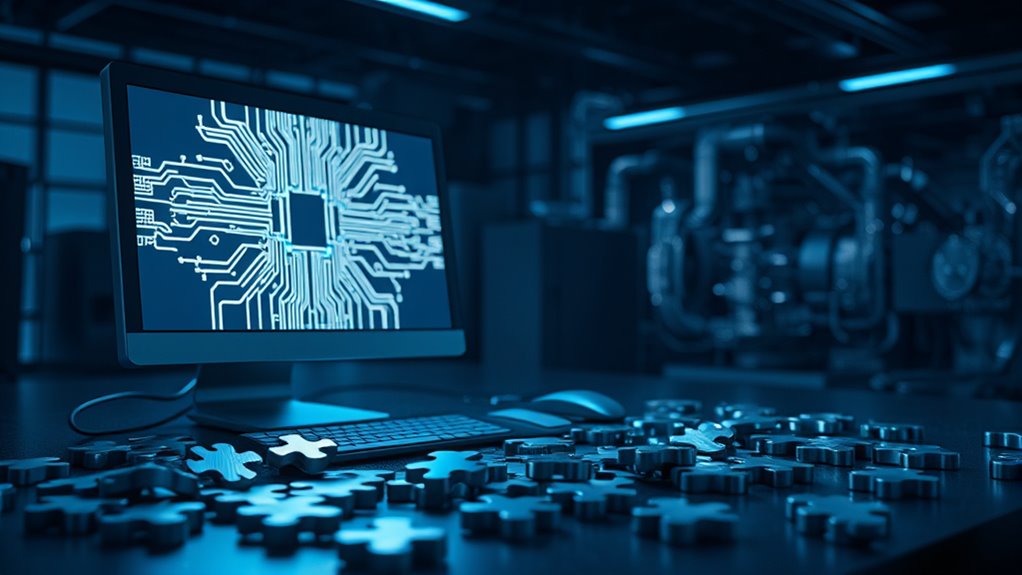Artificial intelligence, or AI, is a fascinating technology that lets machines act like humans in some ways. It’s a field where computers learn to think and do tasks that usually need human brains. Think of it as teaching machines to solve problems, understand language, or even recognize faces. AI’s core idea is using data to make predictions or decisions, and it’s built on stuff like machine learning and deep learning. These are ways computers get smarter by studying tons of information.
Artificial intelligence is captivating, enabling machines to mimic human thinking, solve problems, and understand language by learning from vast data.
Many companies are leading the charge in AI technology, creating tools that change how businesses work. They’re using AI to dig through huge piles of data, something humans can’t do as fast. This helps companies make better choices, predict what customers might want, or spot trends in the market. AI also powers chatbots and virtual assistants that talk to customers, making service quicker and easier. Plus, it’s helping automate boring tasks, saving time and money for all kinds of industries. A key component of this progress is the vast amount of data used to train AI systems, ensuring accurate predictions (vast data training).
AI isn’t just one thing; it comes in different types. There’s narrow AI, which focuses on specific jobs like translating languages or recognizing images. Then there’s the idea of general AI, which isn’t here yet but would act like a human brain across many tasks. Generative AI is another cool type—it can create new stuff like pictures or stories. These leaders in AI are pushing hard to make these technologies even better, especially with future breakthroughs in mind. AI’s ability to process massive data sets quickly gives businesses a competitive edge (massive data processing).
In tech, AI is everywhere. It’s in speech recognition that turns talk into text, or image tools that identify objects. Natural language processing lets machines understand human words, while data analytics finds hidden patterns. AI also enhances efficiency by automating repetitive tasks, freeing humans for more complex challenges (automating repetitive tasks). But it’s not all perfect. There’re worries about privacy since AI needs lots of data, and there’s a push for rules to keep things fair and safe.
Looking ahead, AI leaders are excited about what’s next. They’re working on making machines think more like humans. It’s a big challenge, but the potential is huge. AI’s already changing the world, and these pioneers are driving that change every day with new ideas and tools.









